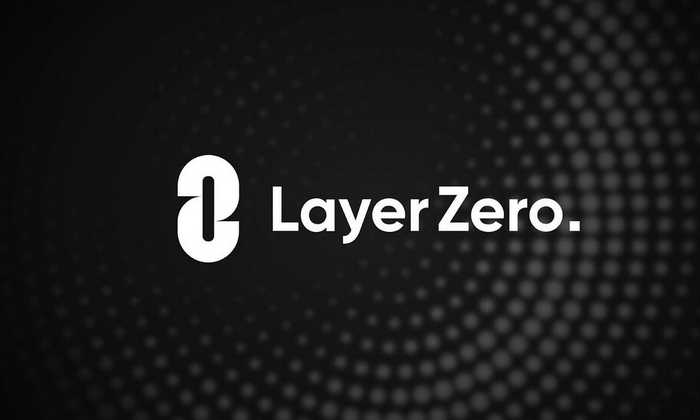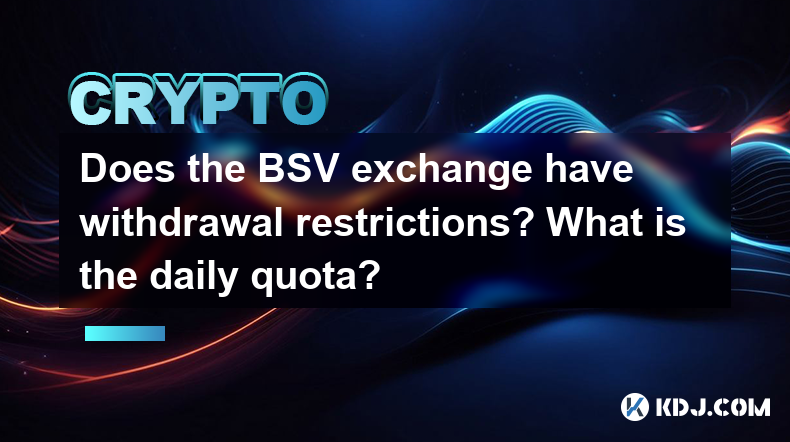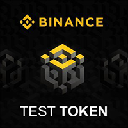-
 Bitcoin
Bitcoin $96,803.6177
2.81% -
 Ethereum
Ethereum $1,828.5581
1.68% -
 Tether USDt
Tether USDt $0.9999
0.01% -
 XRP
XRP $2.1468
2.05% -
 BNB
BNB $602.6394
0.89% -
 Solana
Solana $147.5968
2.36% -
 USDC
USDC $1.0001
0.00% -
 Dogecoin
Dogecoin $0.1716
2.33% -
 Cardano
Cardano $0.6808
3.84% -
 TRON
TRON $0.2444
-1.25% -
 Sui
Sui $3.3886
2.40% -
 Chainlink
Chainlink $13.9419
3.67% -
 Avalanche
Avalanche $19.8957
1.91% -
 Stellar
Stellar $0.2615
2.17% -
 UNUS SED LEO
UNUS SED LEO $8.7299
0.81% -
 Shiba Inu
Shiba Inu $0.0...01278
2.17% -
 Toncoin
Toncoin $3.0073
0.91% -
 Bitcoin Cash
Bitcoin Cash $375.7472
6.80% -
 Hedera
Hedera $0.1762
2.34% -
 Litecoin
Litecoin $92.0081
12.02% -
 Hyperliquid
Hyperliquid $20.8341
4.01% -
 Polkadot
Polkadot $3.9623
2.13% -
 Dai
Dai $1.0001
0.02% -
 Monero
Monero $284.6139
3.64% -
 Bitget Token
Bitget Token $4.3030
0.16% -
 Ethena USDe
Ethena USDe $1.0004
0.01% -
 Pi
Pi $0.5803
-0.99% -
 Pepe
Pepe $0.0...08024
2.72% -
 Bittensor
Bittensor $379.8013
3.26% -
 Uniswap
Uniswap $4.9649
1.30%
Who issued LayerZero (ZRO)?
LayerZero Labs, the company responsible for developing the protocol, conducted a private token sale to raise funding for the project.
Dec 03, 2024 at 05:45 pm

Who Issued LayerZero (ZRO)?
LayerZero (ZRO) is a cross-chain interoperability protocol that allows blockchain applications to communicate and transact with each other seamlessly. It aims to enable the development of a decentralized and connected blockchain ecosystem, where assets and data can move freely between different chains. ZRO is the native token of the LayerZero protocol and serves various purposes within the ecosystem.
1. LayerZero Protocol Overview
LayerZero is a Layer 1 protocol designed specifically for cross-chain communication. It employs a novel architecture called the "Omnichain Network," which acts as a bridge between different blockchains. This network facilitates the transfer of messages, assets, and smart contract calls across participating chains, enabling interoperability and collaboration among various blockchain networks.
Key features of LayerZero include:
- Blockchain agnosticism: LayerZero is compatible with various blockchain platforms, enabling cross-chain interactions between different ecosystems.
- Fast and secure messages: The protocol uses a lightweight messaging system to facilitate rapid and reliable communication between chains.
- Smart contract interoperability: LayerZero allows smart contracts on different chains to interact directly, enabling complex cross-chain applications.
2. ZRO Token Utility
ZRO, the native token of the LayerZero protocol, serves multiple purposes within the ecosystem:
- Gas fees: ZRO is utilized to pay for gas fees associated with cross-chain transactions, such as message transmission and contract invocations.
- Staking rewards: ZRO holders can stake their tokens to participate in the network's consensus mechanism and earn rewards for securing the protocol.
- Governance: ZRO holders will have the ability to participate in the governance of the LayerZero protocol through on-chain voting.
- Payment for services: ZRO can be used to pay for services provided by the LayerZero ecosystem, such as oracle data or cross-chain development tools.
3. Issuance of ZRO
LayerZero Labs, the company behind the development of the LayerZero protocol, conducted a private token sale to raise funds for the project. The token distribution was as follows:
- Seed round: A portion of ZRO was sold to early investors during the seed funding round.
- Private round: A larger allocation of ZRO was sold to private investors in a private token sale.
- Team and advisors: A portion of ZRO was allocated to the development team and advisors.
- Future ecosystem development: A reserve of ZRO was allocated for future initiatives aimed at expanding the LayerZero ecosystem.
4. Initial Token Distribution and Sale Price
The initial token distribution of ZRO comprised the following:
- Seed round: Tokens were sold at a price of approximately $0.25 per ZRO.
- Private round: Tokens were sold at a higher price of approximately $0.35 per ZRO.
The price of ZRO has fluctuated since its initial distribution, reflecting market dynamics and the adoption of the LayerZero protocol.
5. Public Token Sale
A public token sale or initial exchange offering (IEO) for ZRO has not been conducted to date. However, LayerZero Labs may consider a public token sale in the future to expand the accessibility and adoption of the protocol.
Disclaimer:info@kdj.com
The information provided is not trading advice. kdj.com does not assume any responsibility for any investments made based on the information provided in this article. Cryptocurrencies are highly volatile and it is highly recommended that you invest with caution after thorough research!
If you believe that the content used on this website infringes your copyright, please contact us immediately (info@kdj.com) and we will delete it promptly.
- Dogecoin (DOGE) Price Shows Signs of Recovery After a Week of Selling Pressure
- 2025-05-07 11:05:13
- The ups and downs of Jeffy Yu and Zerebro: from genius to turmoil
- 2025-05-07 11:05:13
- Dogecoin (DOGE) Price Struggles Under the $0.18 Resistance as Geopolitical Tension Rises. Here’s How DOGE Could React If It Matches 30% of US M1 Supply
- 2025-05-07 11:00:27
- Melania Trump's "Meme Coin" Got Dumped by Early Investors, Making Them Millions
- 2025-05-07 11:00:27
- Bitcoin (BTC) Head and Shoulders Pattern Could Be Forming, XRP (XRP) Drops Below 200-Day EMA
- 2025-05-07 10:55:12
- RCO Finance Is Drawing More Users Than Dogecoin and Shiba Inu Combined, Here’s Why
- 2025-05-07 10:55:12
Related knowledge

BSV transaction fees suddenly increased? How to adjust the handling fee to save costs?
May 02,2025 at 06:42am
Understanding BSV Transaction FeesBSV (Bitcoin SV) aims to fulfill the original vision of Bitcoin as a peer-to-peer electronic cash system. One of the key elements in this system is the transaction fee, which compensates miners for including transactions in the blockchain. Recently, users have noticed a sudden increase in BSV transaction fees, which can...

Does BSV transaction require real-name authentication? Is anonymous trading feasible?
May 03,2025 at 03:14pm
The question of whether BSV (Bitcoin SV) transactions require real-name authentication and whether anonymous trading is feasible is a complex one, deeply intertwined with the broader dynamics of cryptocurrency regulations and blockchain technology. Let's delve into these aspects to provide a comprehensive understanding. Understanding BSV and Its Transac...

Does the BSV exchange have withdrawal restrictions? What is the daily quota?
May 07,2025 at 08:01am
The BSV (Bitcoin SV) exchange, like many other cryptocurrency platforms, implements various withdrawal restrictions and daily quotas to ensure the security and stability of the platform. Understanding these restrictions is crucial for users who frequently engage in transactions involving BSV. This article delves into the specifics of withdrawal restrict...

How to solve the high slippage of BSV transactions? How to choose between limit and market orders?
May 02,2025 at 09:01pm
High slippage can be a significant concern for traders dealing with Bitcoin SV (BSV) transactions. Slippage refers to the difference between the expected price of a trade and the price at which the trade is actually executed. This can occur in fast-moving markets or when there is low liquidity. To address this issue, understanding the mechanics of slipp...

What if BSV transactions are frozen? How to contact customer service to unblock the account?
May 05,2025 at 05:01am
When dealing with Bitcoin SV (BSV) transactions, encountering issues such as frozen transactions can be a stressful experience. This article will guide you through the process of understanding why BSV transactions might be frozen and how to contact customer service to unblock your account. We will cover the reasons behind frozen transactions, steps to t...

What if BSV node synchronization is slow? How to optimize local wallet performance?
May 03,2025 at 04:35pm
When dealing with BSV (Bitcoin SV) node synchronization and optimizing local wallet performance, it's crucial to understand the underlying issues and implement effective solutions. Slow synchronization and poor wallet performance can significantly hinder your experience with the BSV network. This article will delve into the reasons behind slow BSV node ...

BSV transaction fees suddenly increased? How to adjust the handling fee to save costs?
May 02,2025 at 06:42am
Understanding BSV Transaction FeesBSV (Bitcoin SV) aims to fulfill the original vision of Bitcoin as a peer-to-peer electronic cash system. One of the key elements in this system is the transaction fee, which compensates miners for including transactions in the blockchain. Recently, users have noticed a sudden increase in BSV transaction fees, which can...

Does BSV transaction require real-name authentication? Is anonymous trading feasible?
May 03,2025 at 03:14pm
The question of whether BSV (Bitcoin SV) transactions require real-name authentication and whether anonymous trading is feasible is a complex one, deeply intertwined with the broader dynamics of cryptocurrency regulations and blockchain technology. Let's delve into these aspects to provide a comprehensive understanding. Understanding BSV and Its Transac...

Does the BSV exchange have withdrawal restrictions? What is the daily quota?
May 07,2025 at 08:01am
The BSV (Bitcoin SV) exchange, like many other cryptocurrency platforms, implements various withdrawal restrictions and daily quotas to ensure the security and stability of the platform. Understanding these restrictions is crucial for users who frequently engage in transactions involving BSV. This article delves into the specifics of withdrawal restrict...

How to solve the high slippage of BSV transactions? How to choose between limit and market orders?
May 02,2025 at 09:01pm
High slippage can be a significant concern for traders dealing with Bitcoin SV (BSV) transactions. Slippage refers to the difference between the expected price of a trade and the price at which the trade is actually executed. This can occur in fast-moving markets or when there is low liquidity. To address this issue, understanding the mechanics of slipp...

What if BSV transactions are frozen? How to contact customer service to unblock the account?
May 05,2025 at 05:01am
When dealing with Bitcoin SV (BSV) transactions, encountering issues such as frozen transactions can be a stressful experience. This article will guide you through the process of understanding why BSV transactions might be frozen and how to contact customer service to unblock your account. We will cover the reasons behind frozen transactions, steps to t...

What if BSV node synchronization is slow? How to optimize local wallet performance?
May 03,2025 at 04:35pm
When dealing with BSV (Bitcoin SV) node synchronization and optimizing local wallet performance, it's crucial to understand the underlying issues and implement effective solutions. Slow synchronization and poor wallet performance can significantly hinder your experience with the BSV network. This article will delve into the reasons behind slow BSV node ...
See all articles




















































































